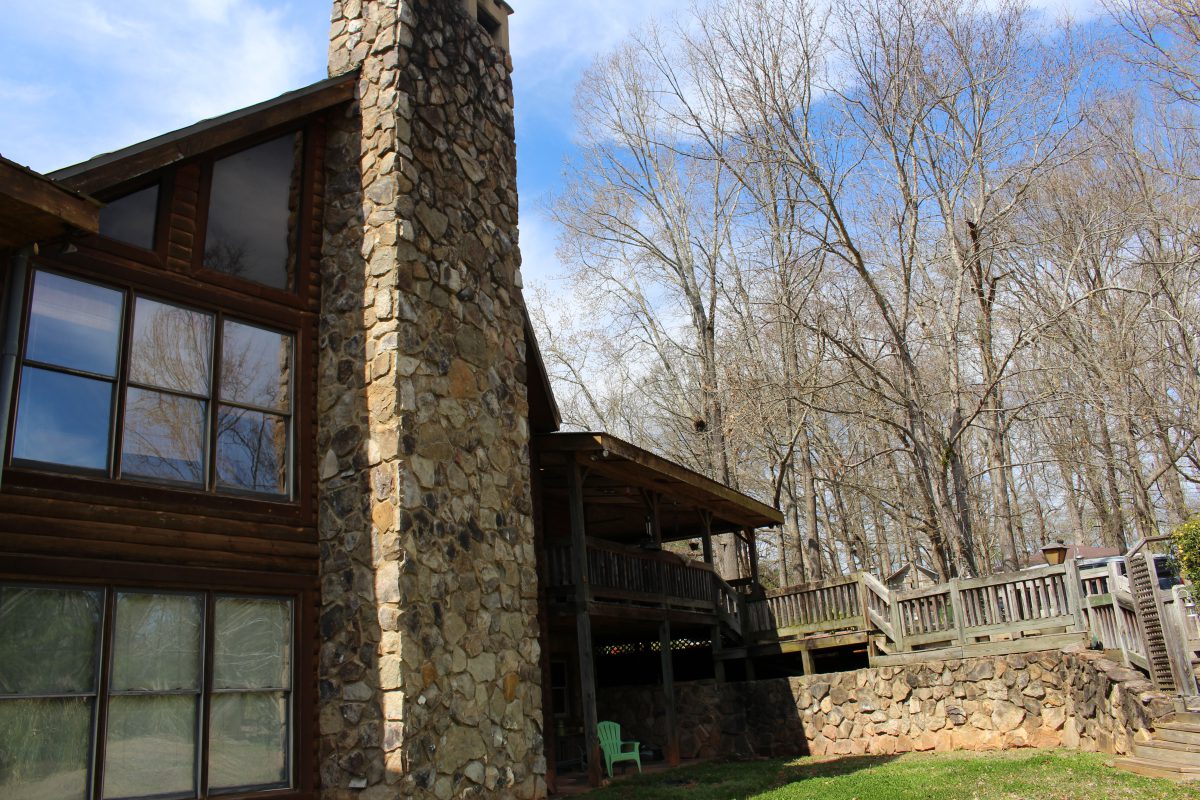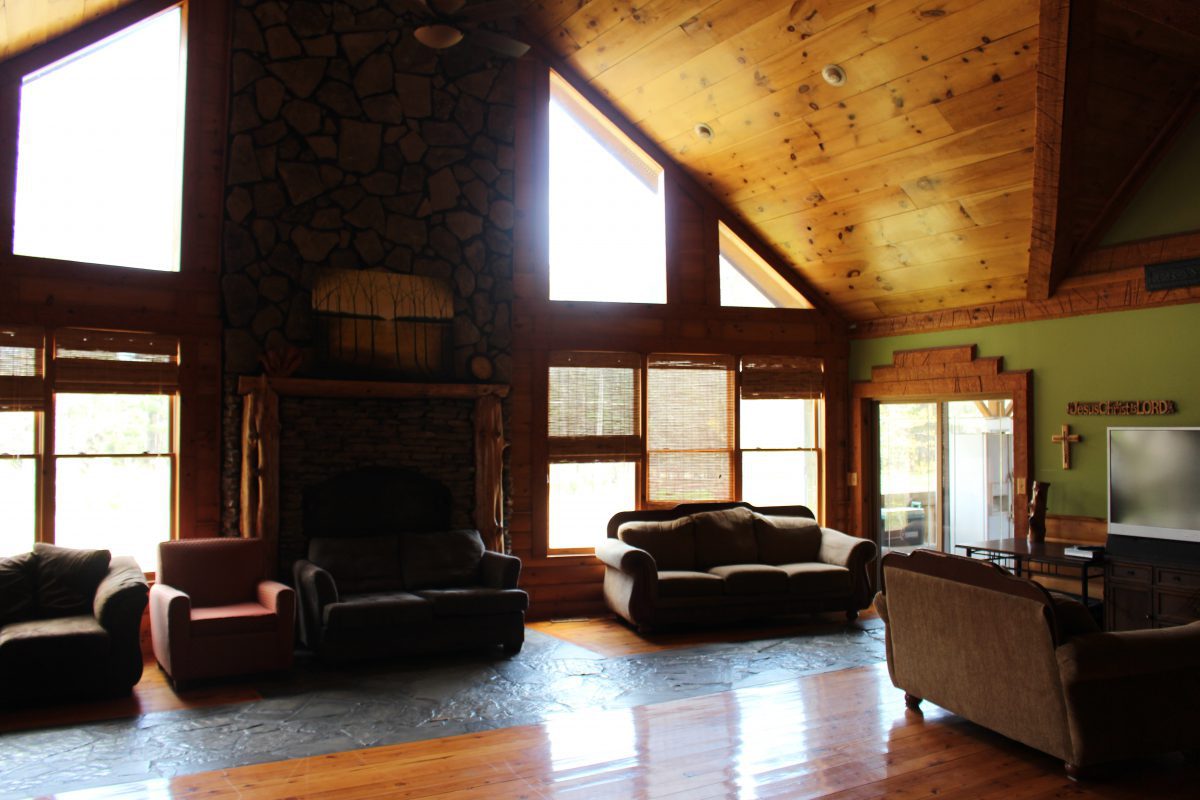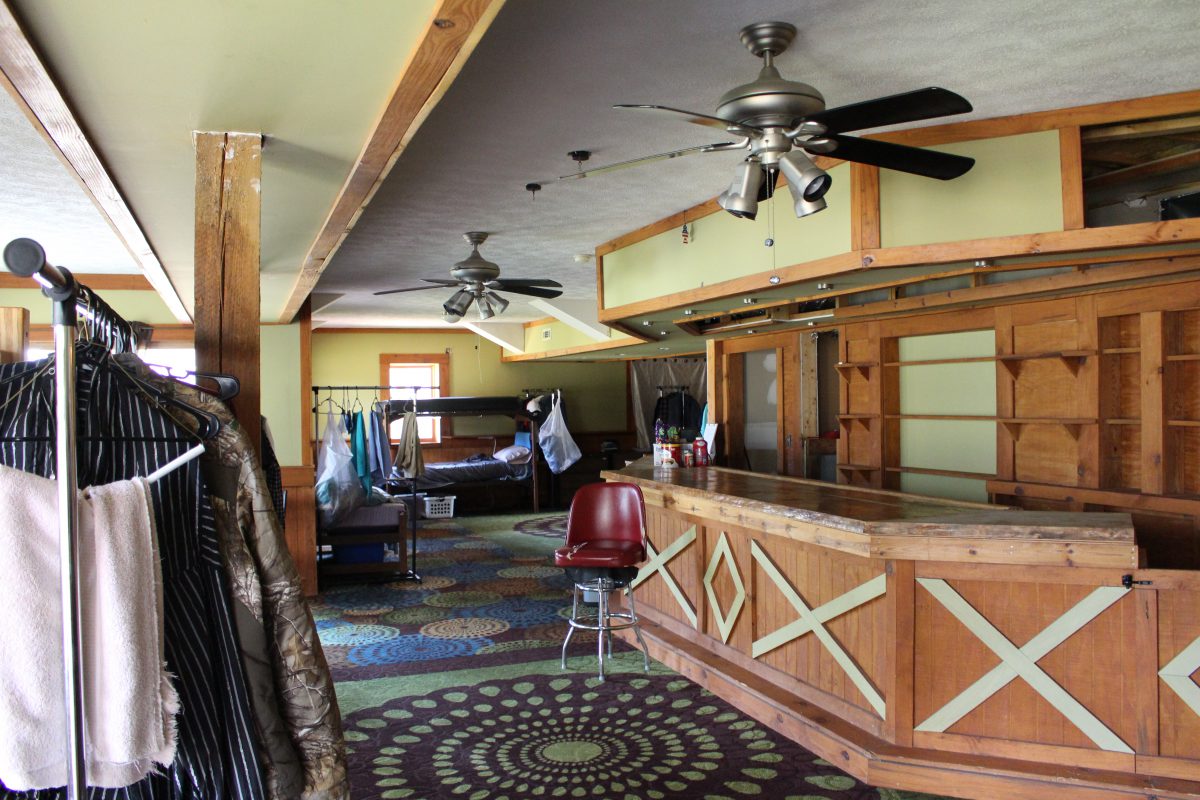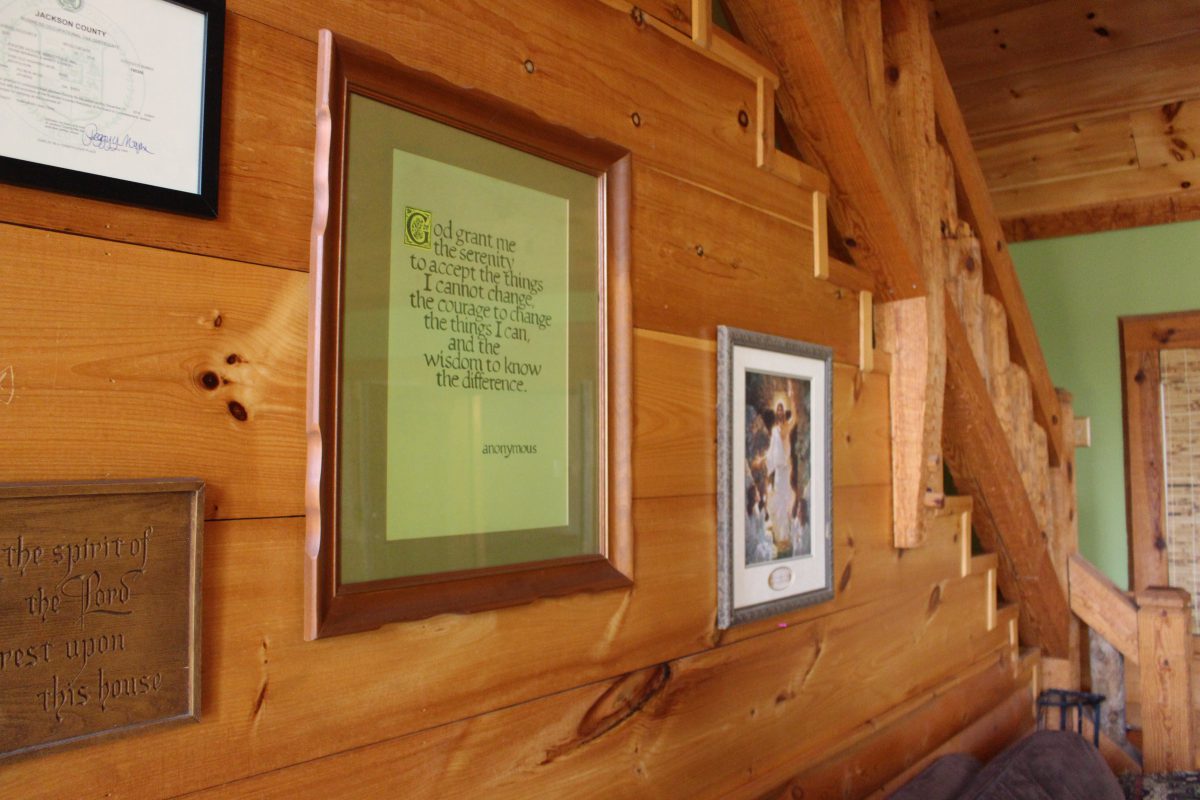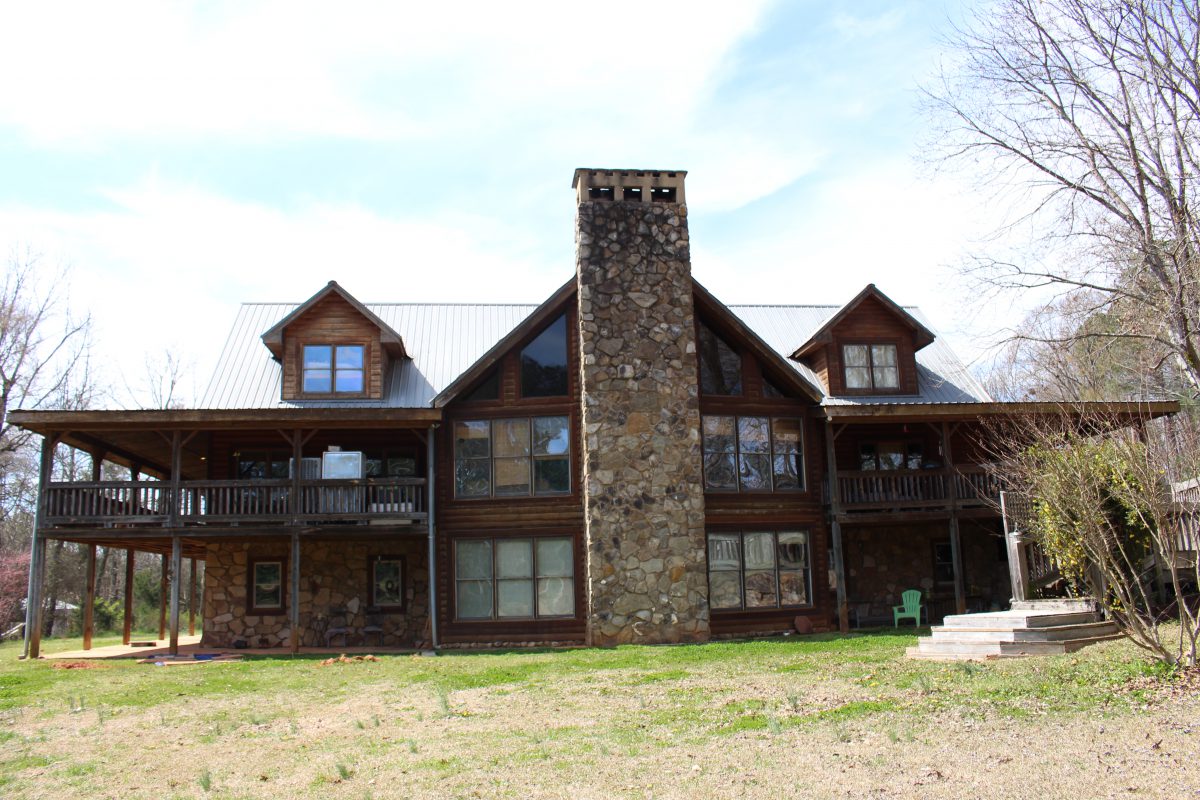Rev. Dr. Charles McDonald was very quick to tell me that Favor House Ministries is not a halfway house. To its residents, typically numbering in the dozens at a time, Favor House may be a last resort, a longshot opportunity to salvage their lives and relationships. Inversely, it may mark a new beginning for some, a launching point for a better life. For Dr. McDonald, Favor House is a personal mission.
Favor House was founded four years ago by Adam Manning as a “Christ-focused, non-profit, evidence-based, 12-step recovery program.”
Why It’s Newsworthy: It is a local operation, located just north of Athens, Georgia, that helps people recover from incarceration, kick addiction, find employment, and readjust to society.
It takes in men only, about 80 percent of whom are referred by the criminal justice system, and several who check in voluntarily. Favor House has established relationships with GEO Group prison system, substance abuse programs, and Christian counselor organizations in an effort to locate and encourage candidates for rehabilitation. They also partner with local law enforcement, parole and probation officers, district attorneys, and detox centers.
A Proven Approach
The “evidence-based” part of the organization’s mission was a point of emphasis for Dr. McDonald, who serves as assistant director under Manning. He maintains that there are methods of rehabilitation that are proven to be effective by measurable guidelines. McDonald says Favor House is faithful to the traditional 12-step recovery program.
I feel like some rehab centers or halfway houses that have similar missions are making mistakes. They… model programs that don’t really work for the sake of creativity or newness. Favor House is faithful to what has worked,” said McDonald.
These methods have solid foundations, too. Manning and McDonald both have struggled with addiction in their own lives, and their experience makes them relatable to those with similar struggles and apex mentors for sobriety. “My experience allows me to help people,” says McDonald.
The Refuge
The actual Favor “House,” itself, is a welcoming, gentle structure, a three-story log building located on a backroad just north of the Clarke County line. This is one side of the balance that Favor House draws between comfort and rigidity. “The House has a very rigid structure. Our men are closely monitored during their stays, and they’re held accountable. That’s important, and it’s necessary in trying to change thinking and behavior,” says McDonald. The house has a hall of dorm-like rooms, a large common area, a kitchen with granite-top counters, a swimming pool, and some rooms for the residents who have spent the most time in the house. Within the house, residents are required to perform chores and keep their spaces tidy.
Walter Hilton walked me through a normal day’s activities at the Favor House. At 69-years-old, Hilton is the oldest of the 25 current Favor House residents, and he serves as house manager. He greeted me at the door with a bearded smile, and began describing his daily tasks and duties, as well as what is expected of every house guest as if he were a veteran taskmaster. “There are things that each person has to take care of every day. We have a chore list, a grocery list, we do daily prayer journals, and everyone is accountable for his job,” says Hilton. He was one of the 20 percent who checked in voluntarily, and is in the fourth month of his second stay at Favor House.
Work and Responsibility
While I toured the grounds, most of the Favor House residents were at work at nearby Wayne Poultry Farms.
This doesn’t always happen, but all 25 of our residents are able to work. Sometimes they don’t qualify or there’s no room, but we’ve been fortunate to get them all working, and Wayne Farms has been a big help,” Hilton tells me.
One of Favor House’s main goals is getting its residents employed. They associate with farms like Wayne to help residents reintegrate into the workforce.
Residents are further held accountable in overcoming their substance issues and other social obstacles they might face. They must attend frequent Alcoholics Anonymous meetings (that decrease in frequency as residents progress through the program), attend counseling, participate in Bible studies and weekly worship, undergo random substance testing, maintain a journal, and stay physically and mentally fit enough to work their jobs.
Although Favor House is not associated with any specific church, they are a Christian organization. This is noticeable in some of the residents’ curriculum, like the aforementioned prayer journals, and the interior of the house is adorned with images of Christ and Christian symbolism. Hilton believes that religious aspects, such as an emphasis on gratitude, are key in the overall goal of rehabilitation, and McDonald measures the organization’s effectiveness partially by the relationships that residents form with God. Obviously, though, this is not the only metric for success used by Favor House.
We count every man. No matter how long he stays,” says Mcdonald.
Success
Dr. McDonald is clear-eyed and realistic when he talks about Favor House’s success rates. He says, “Two out of ten that show up end up doing a minimum of one year, and about 75 percent of them stay on the wagon for two or more years. Those numbers are actually slightly better than what you usually hear. A lot of rehab places like to give meaningless stats that families want to hear, but we don’t. We measure success by sustained sobriety, nothing less.” Indeed, American Addiction Centers, a national organization of treatment centers and research studies, reports that rehab facilities often give misleading results of success, using a “very flexible criteria for what defines that kind of success.” Sometimes facilities will not address patients who relapse or come back for more treatment in the statistics they advertise because they might not follow up with their patients.
McDonald says he can’t allow the ones who don’t make it through to discourage him, though. He sometimes has to remind himself of all the good that comes from his service, and of the struggles he’s faced in the past. “Like I said, my experience helps me help others. But if you dwell on the eight out of ten, you won’t sleep at night.”
Having built a robust system of relationships throughout the community, honed and tested its rehabilitation strategies, and surrounded itself with dedicated workers, Favor House aims to be one of the most formidable organizations in the area in fighting addiction, preventing recidivism, and repairing lives. But as is typical with goals this lofty, they aren’t achieved without struggling mightily. Staffers like Dr. McDonald and residents like Mr. Hilton see a lot of heartache and suffering come in and out of the house doors. If you’re looking for proof of whether it’s all worthwhile, look at where they are: still there, still fighting through it every day.


